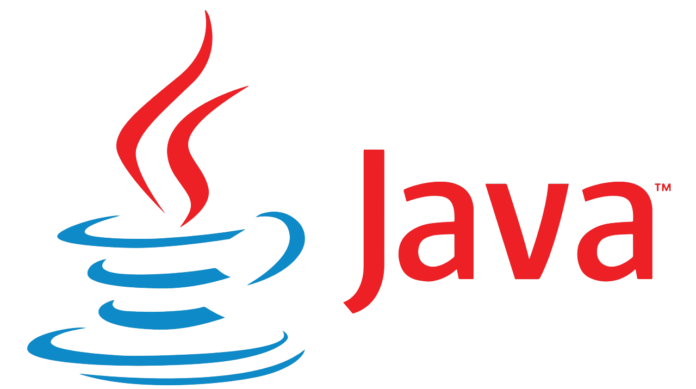Java is a powerful, flexible language that can be used to create desktop applications, mobile apps, web apps and more. Java is also one of the most popular programming languages in use today, which means there’s a huge support network for it on the internet. This introduction will cover all you need to know if you want to learn Java programming – from what Java is and how it compares with other languages like PHP or Python, through setting up your computer environment and writing your first program.
What is Java?
You can think of Java as a general-purpose, object-oriented language that looks a lot like C and C++. It was developed by Sun Microsystems in the 1990s, and Oracle now owns it.
Early versions of Java were primarily meant to be used for web app front ends – think JavaScript but much more powerful. However, modern-day Java is a language that can do just about anything you might need on your computer or server-side software projects.
Who uses Java?
Java is used by all kinds of companies, from banks to insurance firms. For example, did you know that Amazon runs on a custom version of the Oracle JVM (Java Virtual Machine)? It’s also often used for Android development and lots of people use it in embedded systems – think appliances like microwaves or televisions with internet connectivity.
Java is a ‘portable’ language, which means it can be used to build software that runs on different types of computers and operating systems – Mac OS X or Windows for example. There’s also Java ME (Micro Edition) which targets mobile devices like smartphones and tablets specifically.
The most popular integrated development environment (IDE) for Java is Eclipse, which you can download and use free of charge.
What are the advantages of learning Java?
Java will teach you how to think logically, solve problems systematically, understand computer science concepts like algorithms and data structures, master object-oriented programming (OOP), learn about threading models in modern operating systems, handle input/output (I/O) and networking, understand the importance of writing high-quality code with proper documentation, debug effectively, use source control repositories like Git to manage your work – there are many more advantages.
But it’s not all roses if you learn Java! You will also need to put in a lot of hard work learning how to program in this language. It’s not necessarily harder than other languages, but you will need to put the hours into it if you want to get good at Java programming.
Java is used everywhere and has a massive online community that can help with any problems you might run across while learning – so what are you waiting for? Dive right in!
Java is an object-oriented language
But it supports procedural programming. OOP is one of Java’s main strengths, but you can always fall back on good old fashioned procedural code if you need to solve a particular problem in the language – or just want to!
Java is easier than C++,
But harder than Python. Pointers, multiple implementation inheritance, and virtual dispatch are powerful features that make C++ a more versatile language when compared with Java.
Java has an automatic memory management
Also, known as garbage collection. So there are no problems with dangling pointers like in C/C++. This is possible because Java uses a concept called ‘reference counting’ to decide when objects are no longer in use – so they can be destroyed by the garbage collector, freeing up memory for other things.
Java has lots of built-in classes and methods for doing math, string handling etc
But you have less control over memory management. The flip side to having automatic memory management is less control over when the garbage collector runs – you don’t have pointers, for instance, so you can’t tell it to free up specific objects.
Java has no built-in support for multi-threading
But you can create multi-threaded applications using the Java concurrency libraries. Multi-tasking is a big deal these days and something that most programmers will need to be able to do at some point in their career – if your app needs multiple threads of execution, then you’re going to have relied on third-party libraries like java.
All application code must be thread-safe or explicitly use synchronization primitives
And writing thread-safe code is harder than it should be. In C/C++, you have complete control over memory management and can pick the kind of synchronization primitives that best suit your needs – Java forces you to use its own choice from a limited set of tools which makes concurrent programming trickier.
Java has checked exceptions as part of its exception-handling mechanism
So you have to handle all exceptions in your code. Java forces you to deal with errors when they happen – if something bad does go wrong during an application’s execution then the JVM will throw an exception that must be caught by some piece of code further up the call stack. There is also no way to catch a specific kind of exception and re-throw it as something else.
Java has no unsigned integer types
So there is no support for bitwise operations with these numbers. C/C++ have both signed and unsigned integers which can be used in any context – Java only supports the former which means that you must use Integer instead of byte or short if you need to use bitwise operations.
Java is a statically typed language
So all variables must have their type declared at compile time. Java’s static typing means that the compiler will check your code for errors before execution – it can also help with identifying issues during compilation rather than waiting until runtime when they become much harder to track down.
Java has primitive types like byte, short and int
But they are not objects. This is an important difference to note when writing Java code – if you want your variables to behave like objects (be initialized in constructors etc.) then make sure that you wrap them in wrapper classes like Integer or Byte.
The ++ and — operators can be applied to both primitives and object references,
But the + unary plus operator is only valid on numbers. Most languages have different operators for incrementing/decrementing objects vs. primitive types – but it’s possible in Java if you need to do so by careful use of casting or through library functions. If you also want to make programming in your favourite language as convenient as possible by choosing a new monitor, you might be interested in knowing about IPS vs OLED differences
Conclusion
Java has a lot of powerful features and is generally easy to learn, but there are some pitfalls that you need to be aware of if you want your code to avoid bugs or behave as expected.





